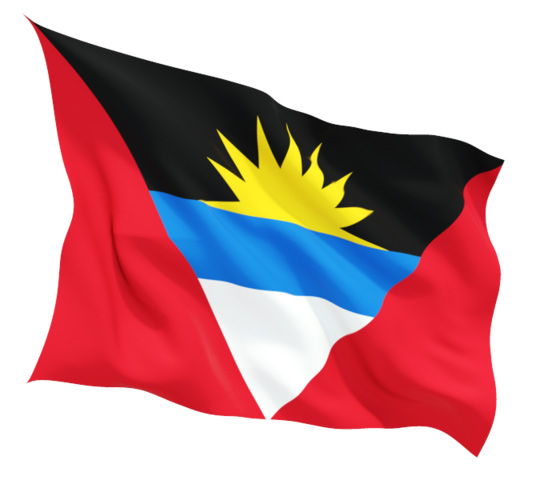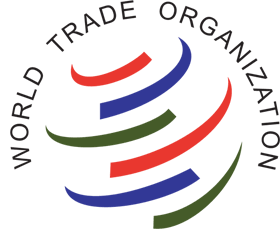A look back at 25 years for the Off Shore Gaming Association
The Off Shore Gaming Association began operations in 1998 and the year 2023 represents 25 years that the independent watchdog site for the gambling industry has been helping members with dispute resolution, sportsbook and casino reviews, research, tips, and of course independent articles and opinions on breaking news. In honor of the 25-year anniversary, I will have a series on OSGA looking at the top 10 stories, both positive and negative, that occurred since 1998 that helped shape the industry today.
For today’s story I will be looking at the dispute that occurred between the country of Antigua and the U.S. at the WTO in respect to an agreement which mandated accepting remote bets.
Antigua grows economy with online gambling
In 1994 the small country of Antigua found its primary industry of tourism at risk due to numerous hurricanes and other natural disasters that were harming its infrastructure and discouraging sun and beach worshippers from vacationing there. After seeking consultations from world experts, including businesses based in the United States for new options to improve its economy, the country decided to engage an infrastructure using the newly created World Wide Web. It was suggested to the island nation that they could be quite prosperous by offering a tax fee haven for many businesses, including online gambling.  The Free Trade and Processing Zone Act was supposed to make the country independent and self sufficient. Unlike other countries where the Internet in the 90s was very sketchy, Antigua’s Cable and Wireless created servers that could handle internet traffic with little delay or shutdowns, which was essential for a gambling website to succeed.
The Free Trade and Processing Zone Act was supposed to make the country independent and self sufficient. Unlike other countries where the Internet in the 90s was very sketchy, Antigua’s Cable and Wireless created servers that could handle internet traffic with little delay or shutdowns, which was essential for a gambling website to succeed.
In 1996 Antigua announced that for a $100,000 yearly licensing fee, any company could set up an Internet gambling business, provided they agreed to abide by rules put in place to address issues like underage and problem gambling. Operators were also required to submit documentation to show they were not criminals and were in good standing and they had to show they had the money to pay gambling winnings. The Antiguan Gambling Commission was set up to oversee these requirements were adhered to. In fact, the regulatory requirements were so strict that when the UK Gaming Commission issued a whitelisting a few years later, which indicated what countries could advertise their services in the UK because that country had rules that were at least equal to the UK’s regulations, Antigua was put on that whitelist. Within a year of the announcement companies started setting up online operations in Antigua. World Sports Exchange (WSEX) was the first site to set up and were followed by sites like SOS, Intertops (who moved their online operations from Austria), Carib Sports, World Wide Telesports (WWTS), Post Time and many online casinos. And soon many gambling companies that were viewed as the best in the business set up in Antigua and took bets from around the world, although most bets did come from customers in The United States.
U.S. crackdown
The gambling companies were very successful and this caught the eye of U.S. politicians, who viewed it as a threat. Consequently, Attorney General Janet Reno issued a statement to American citizens that had websites in Antigua (along with other countries like Costa Rica and Curacao), saying that they couldn’t hide online or offshore and they needed to cease operations and return to the United States to face charges for violating the 1961 Interstate Wire Act, which banned betting via. telephones and telegraphs. That law was designed to prevent the mafia from funding their operations by taking sports and horse racing bets on the telephone, but the U.S. attorneys said it was intended for all communications, including the Internet, and courts later agreed. Many operators did return and accept the penalties they were assessed (usually fines), but Jay Cohen from World Sports Exchange decided to return to the United States and fight the charges, arguing that what he was doing was legal, since the bets were processed in Antigua where it was legal. ![]() The U.S. argued that the bet occurs where it is placed, i.e., the United States. Cohen’s attorney made a compelling argument and it was believed by many that he would be found not guilty, but in the address to the jury the judge in the case told them that the arguments presented by Cohen were irrelevant and effectively told the jury to find him guilty. In a post case interview, one juror said that they wanted to find Cohen not guilty, but the judge’s orders made that impossible. After the verdict Cohen said his biggest mistake was putting his faith in the justice system and believing that he would get a fair trial.
The U.S. argued that the bet occurs where it is placed, i.e., the United States. Cohen’s attorney made a compelling argument and it was believed by many that he would be found not guilty, but in the address to the jury the judge in the case told them that the arguments presented by Cohen were irrelevant and effectively told the jury to find him guilty. In a post case interview, one juror said that they wanted to find Cohen not guilty, but the judge’s orders made that impossible. After the verdict Cohen said his biggest mistake was putting his faith in the justice system and believing that he would get a fair trial.
Starting with the WSEX case, the U.S. began cracking down on offshore operators which led to a massive decline in revenue for Antigua. In 2000 there were 93 gambling operators in Antigua with revenue of over $7 billion, but by the end of 2002 this changed when the U.S. made it illegal for companies to market offshore gambling and banks and other payment companies, like PayPal, were encouraged to block payments for Internet gambling. The number of operators dropped to 38 in Antigua and it appeared things would get worse, unless something was done. Consequently, the country with encouragement from WSEX decided to sue the United States in the courts of the World Trade Organization (WTO) for violating a trade agreement, namely the General Agreement on Trade and Services (GATS) which all countries that were members of the WTO agreed to in 1995. Countries were allowed to exclude any goods or services that they felt needed protection on moral and other grounds in 1995 and the U.S. did not exclude gambling.
Antigua’s lead counsel, attorney Mark Mendel argued that the U.S. failed to live up to a commitment under Article XIV of GATS titled "recreational services," which included gambling. The U.S. Trade Representatives (USTR) at the WTO said that they did exclude gambling from the agreement and when it was pointed out that they failed to list gambling as an excluded activity when they signed the GATS agreement in 1995, they said it was simply an oversight and they meant for it to be included, since remote gambling went against the country’s morals. In better words, the United States was saying that any gambling that did not take place in brick-and-mortar locations like physical casinos or racetracks was immoral. While the argument was ridiculous, it appeared the WTO courts were prepared to side with the U.S. until Mendel argued that the U.S. was already involved in remote gambling in the sport of horse racing because the Interstate Horse Racing Act (IHA), allows domestic tracks to take bets across state lines and remotely via telephone and the internet. The IHA was passed in the 1980s to allow for simulcast wagering at off track betting outlets and was later amended to include bets by remote means including the internet once the internet was a viable form of communications. At the time sites like CapitalOTB.com were thriving. The USTR said that doesn't count because it was a civil statute and did not take precedence over previous federal laws like the Wire Act and Travel Act, but the WTO panel rejected the United States' position and said that the argument makes no sense since Americans could bet remotely on horse racing, so one form of gambling can’t be moral while a different form is immoral. A WTO Appellate Body agreed with the original Panel's assessment and told the U.S. to either open its market to gambling sites based in Antigua or stop remote gambling on horse racing. Seeing the progression of the case, other countries including the EU, Canada, Japan, India, Macau and Costa Rica added their name to the GATS complaint. Under the rules of the WTO, if a country is found in violation of a trade agreement they had to abide by the agreement or offer a reciprocal amount of trade in a different area. If they chose the latter this was known as trade in kind. The USTR did absolutely nothing for almost a year, but when they needed to show that they were in compliance with the court’s ruling they simply said that they were now in compliance.
Seeing the progression of the case, other countries including the EU, Canada, Japan, India, Macau and Costa Rica added their name to the GATS complaint. Under the rules of the WTO, if a country is found in violation of a trade agreement they had to abide by the agreement or offer a reciprocal amount of trade in a different area. If they chose the latter this was known as trade in kind. The USTR did absolutely nothing for almost a year, but when they needed to show that they were in compliance with the court’s ruling they simply said that they were now in compliance.
After getting nowhere and with a clear indication that the U.S. had no intentions of opening up its market or excluding horse racing (particularly after a horse racing spokesperson said they would give up concessions in the IHA "over our dead bodies"), in 2005 the WTO issued a ruling in favor of Antigua and awarded the country $21 million a year in damages which they said is what they deemed Antigua could have made if the U.S. allowed Antigua the ability to offer remote wagering on U.S. horse racing. This was far from the more than $3 billion a year that Antigua requested, but it was a shock win nonetheless and was a case that all gambling analysts said was David beating Goliath. Antigua asked that they be allowed to apply the award in the area of trademarks, patents and intellectual property (TRIPS), which the WTO agreed to. In better words, Antigua could offer legal copies of software, music and other protected products for pennies a copy to recoup the $21 million. The U.S. warned Antigua not to use that option or they would face serious repercussions.
Antigua spent the next decade trying to negotiate with the U.S. to pay them what was owed, but were met with disinterest and a total unwillingness to even talk. In the meantime, the U.S. did settle with the EU, Canada, Japan and India in 2007 with concessions in warehousing, technical testing services, postal services and research and development, but it did not seem interested in doing anything with Antigua, Costa Rica and Macau, who they said deserved nothing since they were still catering to the U.S. market with illegal gambling products. President George W. Bush also said the country was retroactively excluding gambling and betting services from its GATS commitment and when they were told this may not be legal or applicable the USTR said they didn’t care.
To date, Antigua still hasn’t received a penny from the ruling and are owed $400 million plus interest and the U.S. even turned down an offer from the Antiguan government to settle for $100 million, a mere fraction of what they conceded to the other countries that added their names to the lawsuit. To add insult to injury, the country now only has a handful of gambling sites offering gambling to non-U.S. jurisdictions and their banking system is in a shambles thanks to the U.S. actions, along with the Stanford bank scandal of 2009, which has made Antigua’s banks viewed as rogue entities. No U.S. bank will process payments from companies located there making the industry unattainable, unless the gambling company offers payments by cryptocurrency.
Bullies
Many Americans wonder why the U.S. is often viewed as bullies on the world stage in the area of free trade and this is a case that provides a reason for that opinion. The U.S. agreed to abide by the 1995 GATS treaty and whether they meant to exclude gambling or not is irrelevant. In no business would a company be let off the hook for an agreement they signed simply because they made an error in signing it. They would be required to either abide by the agreement or pay restitution. The U.S. was clearly not going to legalize gambling from Antigua, nor were they going to overturn the IHA and they certainly were not going to allow Antigua to violate intellectual property rights. The only logical solution for the United States would have been to tell the WTO they made a mistake, and worked out a settlement with Antigua to provide them fair compensation or perhaps helping the country develop new sources of income with the new infrastructure that didn’t include gambling. Instead, the U.S. chose to use the "might makes right" philosophy and ruin Antigua’s economy while settling with large countries like Canada, Japan, India and the European Union, realizing that losing trade with them would be devastating. It was just wrong and still is wrong. To this day, the handling by the United States of the ruling against them by the WTO and the treatment of Antigua for a product that today is commonplace in the United States, remains one of the biggest travesties in online gambling.
Read insights from Hartley Henderson every week here at OSGA and check out Hartley's RUMOR MILL!







































